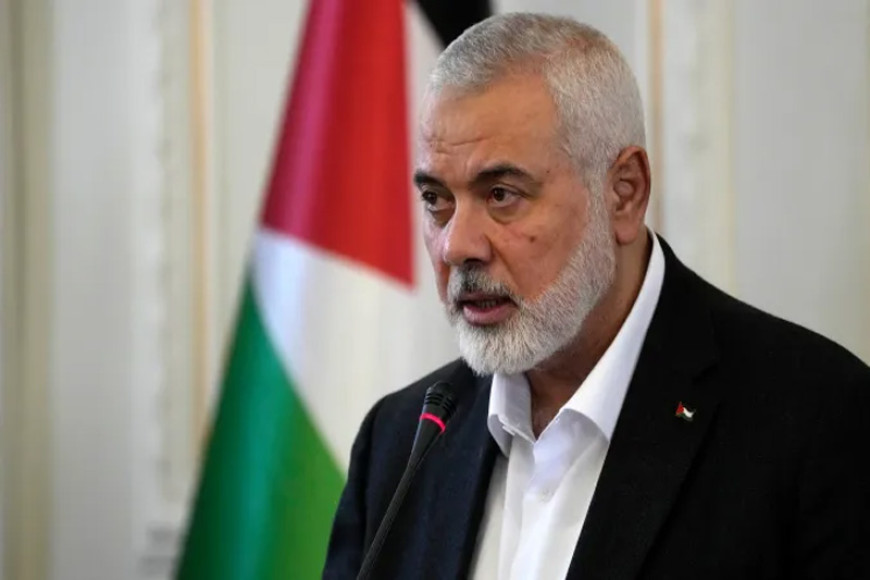"Targeted assassinations can disrupt the leadership structure of militant groups temporarily, but they rarely lead to strategic advantages in the long run. Such actions often lead to immediate retaliation and escalation, which can complicate broader diplomatic efforts and fuel further instability in the region. General (Ret.) David Petraeus: former commander of U.S. Central Command”
On Wednesday, the assassination of Ismail Haniyeh, the political leader of Hamas, in Tehran has triggered a significant geopolitical upheaval. Haniyeh was killed while attending the inauguration of Iran’s new president, a pivotal event that has now been overshadowed by this act of violence. This article delves into the details surrounding the assassination, its implications for the Gaza conflict, and its broader impact on regional and global politics.
#### Background on Ismail Haniyeh and Hamas
**Ismail Haniyeh’s Role:**
Haniyeh, a prominent figure in Hamas, was born in 1963 and joined the group during the First Intifada in the 1980s. Rising through the ranks, he became the political chief in 2017. Haniyeh played a crucial role in cease-fire negotiations and was seen as a moderate within Hamas, which is often characterized by its more hardline factions.
**Hamas Structure and Operations:**
Hamas, founded in 1987, is a Palestinian militant group with a significant military and political wing. It governs the Gaza Strip and has been involved in multiple conflicts with Israel. The group's structure includes various military and political leaders, and while the assassination of a high-profile leader like Haniyeh is impactful, Hamas is organized to withstand such losses.
#### The Assassination and Immediate Reactions
**Details of the Incident:**
Haniyeh was killed in Tehran, where he was attending the inauguration of Iran’s new president, Masoud Pezeshkian. This assassination follows a similar Israeli tactic of targeting key figures during sensitive political moments. The killing occurred just hours after Israel conducted an airstrike on Hezbollah's senior military leader in Beirut, indicating a coordinated strategy to escalate tensions.
**Hamas’s Response:**
Hamas condemned the assassination as a grave escalation intended to break its will and undermine its efforts for peace. Senior Hamas official Sami Abu Zuhri emphasized that the group would persist despite the loss. Hamas’s resilience is rooted in its broad support base and organizational structure.
**Iran’s Reaction:**
Iran has reacted strongly to the assassination, with President Pezeshkian and Supreme Leader Ayatollah Ali Khamenei vowing severe retaliation. The incident occurred during a significant state event, and Iran views it as an act of humiliation and aggression. The Islamic Revolutionary Guard Corps (IRGC) has also condemned the attack and promised to defend Iran's honor.
#### Implications for Cease-Fire Negotiations
**Historical Context:**
The assassination of key leaders during cease-fire negotiations is not unprecedented. In 2012, Israel targeted Ahmad Jabari, a senior Hamas military commander, derailing a cease-fire agreement. This pattern suggests a deliberate strategy to disrupt negotiations and strengthen Israel's bargaining position.
**Impact on Negotiations:**
According to Tahani Mustafa from the International Crisis Group, the assassination could lead Hamas to adopt a more hardline stance, making future negotiations more difficult. The recent escalation has already derailed multiple cease-fire proposals, including those reported by Israeli media as being undermined by Israeli Prime Minister Benjamin Netanyahu.
#### Broader Regional and Global Reactions
**Middle Eastern Responses:**
- **Hezbollah:** The Lebanese militant group, aligned with Hamas and Iran, has expressed solidarity with Hamas. Hezbollah’s involvement could escalate the conflict, given its history of clashes with Israel.
- **Palestinian Authority:** President Mahmoud Abbas condemned the assassination as a dangerous development, urging Palestinians to unite against Israeli actions.
- **Palestinian Islamic Jihad:** The group characterized the assassination as an attack on both Palestinian resistance and Iran, further inflaming tensions in the region.
**Global Reactions:**
- **United States:** Secretary of State Antony Blinken stated that the U.S. had no prior knowledge of the assassination and called for a cease-fire. However, the lack of concrete U.S. intervention to restrain Israeli actions raises questions about the U.S.'s role and influence in the region.
- **China and Russia:** Both countries condemned the assassination, with China calling for a comprehensive cease-fire and Russia labeling the act as an unacceptable escalation.
- **Egypt:** The Egyptian foreign ministry highlighted the increased complexity of the situation and criticized Israel for undermining cease-fire efforts.
- **Other Nations:** Australia, Malaysia, Qatar, and Turkey also voiced concerns, urging for de-escalation and constructive dialogue to address the crisis.
#### Potential for Broader Conflict
**Escalation Risks:**
The assassination has heightened fears of a broader regional conflict, especially if Iran and Hezbollah decide to retaliate. Iran’s strategic response could involve direct or proxy actions against Israeli interests, further complicating the regional security environment.
**International Diplomacy:**
The international community faces the challenge of managing escalating tensions and avoiding a wider conflict. Diplomatic efforts by countries like Egypt, Saudi Arabia, Qatar, and the UAE, which favor a cease-fire, are crucial in preventing further escalation. The U.S.’s role in influencing Israeli policies will be critical in stabilizing the situation.
#### Conclusion
The assassination of Ismail Haniyeh represents a significant turning point in the Gaza conflict and has far-reaching implications for regional and global politics. The incident not only disrupts ongoing cease-fire negotiations but also risks igniting a broader regional conflict. As the situation unfolds, the international community must navigate complex diplomatic channels to manage tensions and seek a resolution to the underlying issues driving the conflict.



